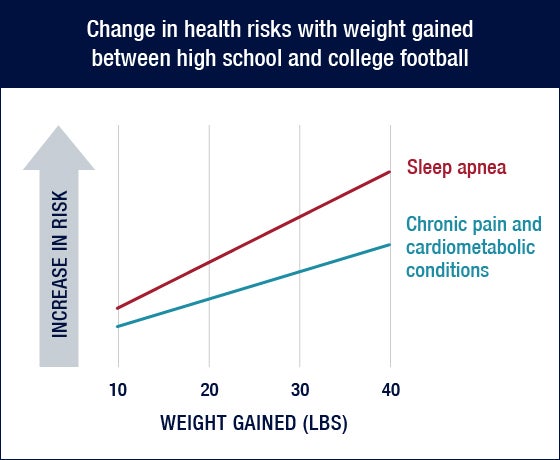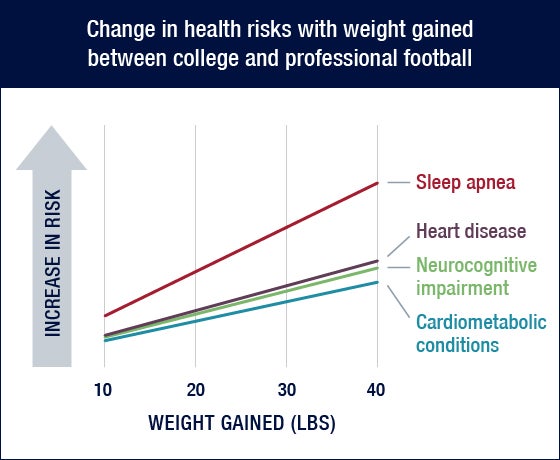Football-Related Weight Gain
Our research indicates that former players who experienced early-life substantial weight gain between high school football and professional play may be at a higher risk for chronic conditions. Weight gain, whether resulting from increased lean muscle mass or other tissue, was associated with post-career health conditions.
What the Science Says
- Every 10 pounds of weight gained between college football and professional play increases the risk of sleep apnea by 25%, heart disease by 14%, neurocognitive impairment by 13%, and cardiometabolic conditions by 11%.
- Every 10 pounds of weight gained between high school and college football raises the risk of sleep apnea by 15%, and chronic pain and cardiometabolic conditions by 9%.
- Former players gained an average of 40 lbs. between high school football and present day, with the majority of weight gained during the football playing years.
Action Items for Former Players
While further research is being conducted on post-career weight gain and health, there are steps you can take now to improve health. Whether or not you experienced substantial weight gain over the course of your football career, you could benefit from taking the following steps:
- Talk with your doctor about completing a comprehensive set of tests to evaluate your heart, sleep, brain, and metabolic health as you may identify treatable conditions.
- Work with your doctor to develop a treatment plan based on what you learn about your health. Addressing sleep apnea, for example, may lead to feeling more rested, greater physical activity and improved overall quality of life.
- Discuss with your doctor the role of a supervised weight loss program that may have benefits for brain, heart, and joint health.
- Identifying health conditions early may help you feel better and prevent future illness.


